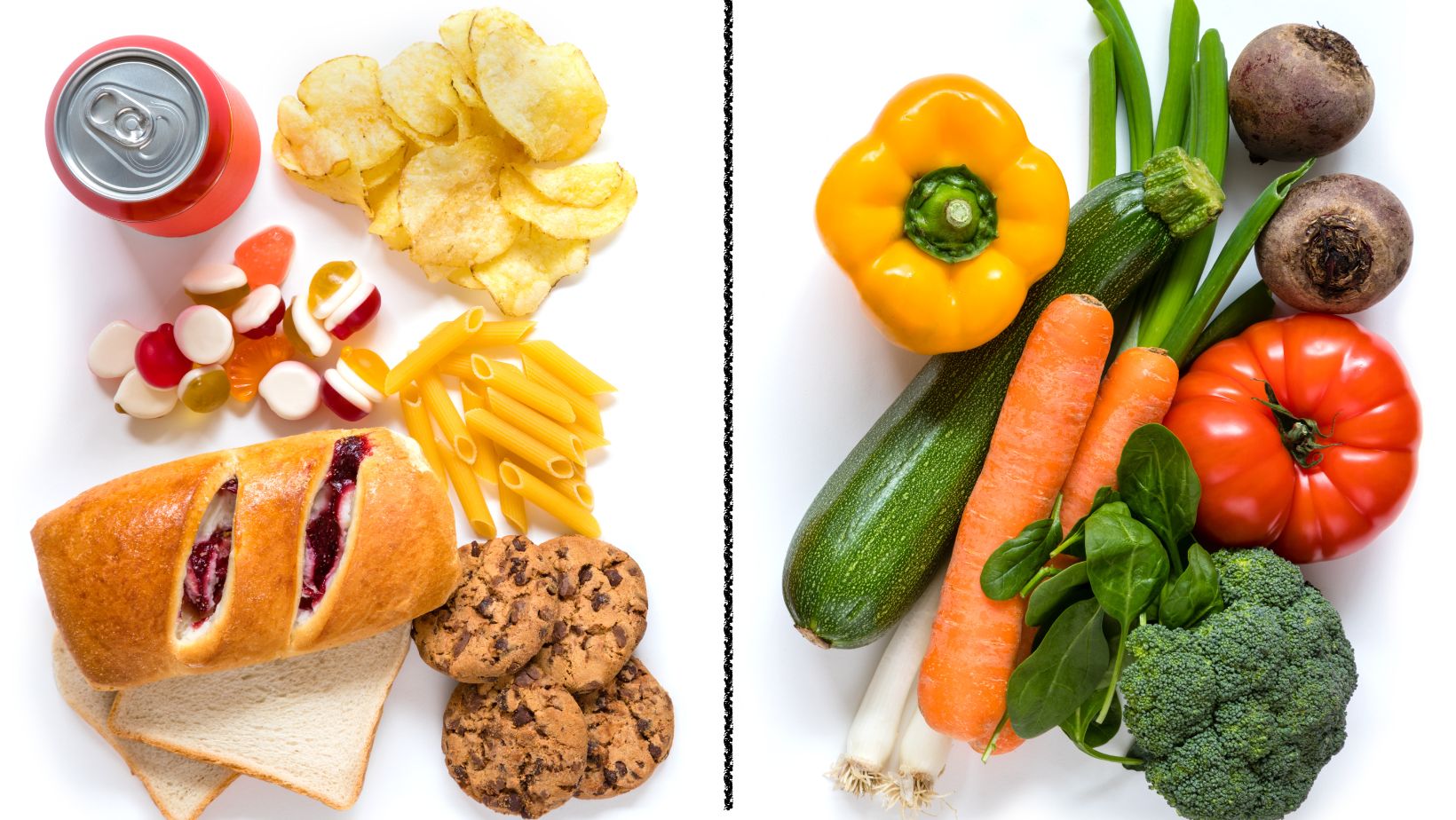The age-old battleground of carbohydrates rages on, with addiction at its core—a fight that could determine the course of your health. Brace yourself for the no-nonsense exploration of whether carbs are ruthlessly addictive and the raw truth about their role in your diet.
Carbs Unveiled
Carbs, the powerhouses of nutrition, are molecules teeming with carbon, hydrogen, and oxygen—your body's relentless fuel source. In the dietary arena, they stand shoulder to shoulder with protein and fat, forming the triumvirate of macronutrients.
Get ready to dissect these dietary carbs into three ruthless categories:
- Sugars: These sweet, short-chain devils lurk in your food, masquerading as glucose, fructose, galactose, and sucrose.
- Starches: Long chains of glucose molecules plotting to infiltrate your digestive system, converting into glucose for that energy surge.
- Fiber: These indigestible insurgents dare to resist your body's assault. Instead, they feed the friendly bacterial armies in your gut, who produce fatty acids for their benefit.
But beware, for sugar alcohols also masquerade as carbs, luring you in with their sweetness, yet offering little caloric satisfaction.
Carbs: The Cold-Hearted Temptation

Have you ever felt the irresistible allure of a carb-laden delight? A relentless, incessant whisper calling your name, torturing your willpower. The internal battle, as you teeter on the precipice of surrender, a bite or two away from succumbing to the seductive charms of junk food—carbs drenched in refined sugar, salt, and fat.
But is it mere willpower or the dark forces of psychology and brain chemistry at play? The question lingers—could carbs be as addictive as alcohol or drugs?
In a world plagued by the global obesity pandemic, the concept of "food addiction" emerges as a stark reality. It stands at the crossroads of chemical addiction and behavioral compulsion. Genetic factors alone can't bear the blame for the rampant rise in obesity worldwide. Environmental changes, dancing with our biological makeup, appear to fuel this pandemic.
As swathes of populations plunge into the abyss of overeating, endangering both physical and mental well-being, "food addiction" emerges as a tempting scapegoat. It conveniently points a damning finger at the food industry, accusing them of producing "addictive" foods. This accusation reverberates, urging obesity prevention strategies to cut the industry's influence on our eating habits.
And the saga intensifies—a groundbreaking study ignites the fire. It boldly proclaims that sugar and sweetness wield a power akin to addictive drugs, setting the stage for a colossal showdown. It dares to challenge addictive substances like cocaine with evidence demonstrating sugar and sweet rewards rivaling, perhaps even surpassing, the thrills of narcotics. The battleground: your brain, where the neural foundations of sugar and sweet cravings stand resilient, defying functional failures, and perhaps echoing an evolutionary drive toward sugar-rich, calorie-dense sustenance. A drive so potent that many succumb to the unrelenting pull of sugary treats in their continuous presence.
Amidst the chaos, a revelation unfurls—researchers unveil the effects of the glycemic index on post-meal brain activity. A high-glycemic index meal, packed with rapidly absorbing carbohydrates, raises the curtain on increased brain activity. In its wake, hunger surges, and blood glucose levels plummet. A sinister dance of desire, reward, and craving plays out, unveiling the vulnerabilities in your psyche.
Carbs: The Ruthless Truth
In the relentless quest for truth, some scientists draw blood, pitting refined carbs, specifically fructose, against the stark backdrop of addiction. Fructose, the simple sugar hiding in fruits, vegetables, and honey, emerges as the malevolent twin of alcohol. It sparks insulin resistance, floods your bloodstream with abnormal fats, and sets your liver ablaze with inflammation. And that's not all—it infiltrates your brain's pleasure pathway, fanning the flames of appetite, reigning over your food choices with a cruel reign of pleasure and reward, divorced from genuine hunger or energy needs.
The price of this dark alliance with fructose? Insulin resistance, inflammation, and disrupted fat metabolism—the stepping stones on the treacherous path to chronic diseases and weight gain.
High-GI carbs, notorious for their roller-coaster effects on insulin and blood sugar, sow seeds of doubt about dopamine—the master of pleasure, reward, and motivation. As you consume high-GI carbs, dopamine dances, puppeteering your desires, potentially deepening the clutches of addiction-like behaviors.
Amidst the tempest of research, a somber truth emerges—food addiction might be the specter haunting the obesity-stricken. A select group, vulnerable to the siren song of high-GI carbohydrates, falls prey to addiction-like neurochemical and behavioral responses.
But the battlefield echoes with dissenting voices. A faction of scientists refuses to bow before the carb addiction theory. They dismiss the notion, citing insufficient human data and emphasizing that animal studies merely reveal addiction-like behaviors rooted in sugar rather than the broad spectrum of carbohydrates.
These unyielding souls pour over the literature, seeking evidence of sugar's addictive grip in humans. Their findings strike like a thunderbolt—human evidence for sugar addiction remains meager, with addiction-like behaviors primarily emerging in the face of intermittent access to sugar-laden delights.
A massive study, an army of 1,495 university students, marches onto the battlefield. Their mission: to assess if sugary foods hold the keys to "food dependence." The verdict? Sugary foods wield minimal power over "food dependence" or weight gain. Instead, they bolster the scientific notion that food energy density and individual eating experiences determine food's allure, orchestrating the symphony of excessive caloric intake.
And still, dissenters persist—a contentious argument emerges, challenging the tools used to evaluate addictive-like eating behaviors. Critics claim that relying on self-assessments and participant reports introduces a volatile element—subjective interpretation.
The Face-Off: Carbs vs. Carbs
In the shadows, the battle rages on, revealing a chilling truth—not all carbohydrates are created equal. Highly processed foods, stealthily concealing high doses of refined carbohydrates and fats with rapid absorption rates (as indicated by their glycemic load), emerge as the sinister culprits of "food addiction." They beckon with their siren song, entrapping many in their embrace.
Conquering the Cravings
As the war wages within you, strategies emerge to combat the relentless cravings for carbs and other culinary vices:
Prepare for Battle: Anticipate the onslaught of cravings. Arm yourself with a battle plan, empowering you to resist the temptation of carb-laden junk foods.
Embrace Protein: Harness the power of protein, from meat to eggs, tofu, or beans, to stave off hunger and surrender.
Fiber's Folly: Turn to fiber-rich fruits, quenching your craving for sweetness while satiating your appetite.
Stay Hydrated: Quench your body's thirst to quell cravings, especially for salty, carb-rich foods.
Battlefield Fitness: Engage in physical warfare, activating your body's endorphin arsenal, disrupting carb cravings in their tracks.
Unearth Triggers: Confront your personal weaknesses, identifying the foods that test your resolve. Prepare for their onslaught.
Self-Compassion: In this war of attrition, remember—you are human. Succumbing to carb cravings merely presents an opportunity to refine your strategy. No self-flagellation required. The path to conquering carb cravings is a journey paved with practice.
In Conclusion
The verdict remains elusive—do carbs wield the power of addiction? While early research hints at the possibility, the full extent of their impact on human behavior and health remains shrouded in uncertainty. Until the battlefield is clear, seize control of your cravings through mindful eating and healthy choices, fortifying your defenses against carb temptations.






